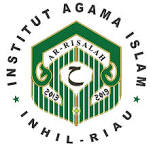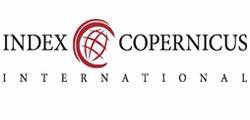Inovasi Manajemen Pendidikan Berbasis Keterampilan Abad 21 di Madrasah Tsanawiyah: Model Integratif 4C Berlandaskan Nilai Islam
DOI:
https://doi.org/10.61104/alz.v3i4.2051Keywords:
Manajemen pendidikan, keterampilan abad 21, 4C, nilai Islam, madrasahAbstract
Penelitian ini berangkat dari urgensi integrasi keterampilan abad ke-21 dalam pendidikan Islam untuk menjawab tantangan global sekaligus menjaga identitas moral dan spiritual madrasah. Tujuan penelitian ini adalah merancang dan mengevaluasi Model Integratif 4C Berbasis Nilai Islam yang berfokus pada penguatan berpikir kritis, kolaborasi, komunikasi, dan kreativitas siswa. Penelitian menggunakan metode kualitatif studi kasus instrumental di Madrasah Tsanawiyah Laboratorium Kota Jambi dengan melibatkan kepala madrasah, guru, siswa, dan koordinator TIK. Data dikumpulkan melalui wawancara, observasi, diskusi kelompok, dan analisis dokumen, kemudian dianalisis dengan model interaktif Miles-Huberman-Saldaña. Hasil penelitian menunjukkan bahwa model ini secara signifikan meningkatkan keterampilan berpikir tingkat tinggi, kolaborasi aktif, kompetensi komunikasi, dan kreativitas siswa, sekaligus mentransformasi praktik guru menuju pembelajaran aktif dengan integrasi teknologi. Penelitian ini berimplikasi pada kontribusi teoretis bagi pengembangan inovasi pendidikan Islam dan pedoman praktis penerapan pembelajaran abad ke-21 di madrasah
References
Anderson, L. W., & Krathwohl, D. R. (2001). A taxonomy for learning, teaching, and assessing: A revision of Bloom’s taxonomy of educational objectives. Longman.
Anwar, H., Arsyad, L., & Mobonggi, A. H. (2020). The management of culture and environment of madrasah: Its implementation and challenges in industrial revolution era 4.0. Jurnal Penelitian dan Evaluasi Pendidikan, 24(1), 1–15. https://journal.uny.ac.id/index.php/jpe/article/viewFile/33488/pdf
As’ari, A. H., Rofi’ah, N., & Nursikin, M. (2023). Project Based Learning dalam pendidikan agama Islam. Khatulistiwa: Jurnal Pendidikan dan Sosial Humaniora, 2(4), 178–189. https://doi.org/10.55606/khatulistiwa.v2i4.963
Darling-Hammond, L., Hyler, M. E., & Gardner, M. (2017). Effective teacher professional development. Learning Policy Institute. https://learningpolicyinstitute.org/product/effective-teacher-professional-development-report
Dede, C. (2010). Comparing frameworks for 21st century skills. In J. Bellanca & R. Brandt (Eds.), 21st century skills: Rethinking how students learn (pp. 51–76). Solution Tree Press.
Fullan, M. (2020). System change in education. American Journal of Education, 126(4), 653–663. https://doi.org/10.1086/709975
Herring, M. C., Koehler, M. J., & Mishra, P. (2016). Handbook of technological pedagogical content knowledge (TPACK) for educators (2nd ed.). Routledge. https://doi.org/10.4324/9781315771328
Hidayatullah, Z., Wilujeng, I., Nurhasanah, N., Gusemanto, T. G., & Makhrus, M. (2021). Synthesis of the 21st-century skills (4C) based physics education research in Indonesia. JIPF (Jurnal Ilmu Pendidikan Fisika), 6(1), 88–95. https://doi.org/10.26737/jipf.v6i1.1889
Hubby, R. S., Nurdin, D., & Suryana, A. (2022). Competency-based education at a Madrasah Aliyah in Sumedang: Eliciting the organized programs. Al-Ishlah: Jurnal Pendidikan, 14(2), 2075–2086. https://doi.org/10.35445/alishlah.v14i2.1576
Kim, H., & Ryu, J. (2021). Hierarchical classroom culture and students’ creativity in East Asia. International Journal of Educational Development, 80, 102308. https://doi.org/10.1016/j.ijedudev.2020.102308
Mesini, M. (2021). Tradisi pendidikan madrasah. Forum Paedagogik, 12(1), 15–28. https://doi.org/10.24952/paedagogik.v13i1.3620
Miles, M. B., Huberman, A. M., & Saldaña, J. (2020). Qualitative data analysis: A methods sourcebook (4th ed.). SAGE Publications.
Mishra, P., & Koehler, M. J. (2014). Introducing TPACK. In M. C. Herring, M. J. Koehler, & P. Mishra (Eds.), Handbook of technological pedagogical content knowledge (TPACK) for educators (pp. 1–10). Routledge.
Nicolosi, S., & Ancona, A. (2020). Effects of cooperative learning model on early adolescents’ social and affective learning outcomes in physical education. Advances in Physical Education, 10(4), 378–390. https://doi.org/10.4236/ape.2020.104031
OECD. (2021). Teachers getting the best out of their students. TALIS. https://doi.org/10.1787/5bc5cd4e-en
Parhan, M., Syahidin, Somad, M. A., Abdulah, M., & Nugraha, R. H. (2024). Developing a contextual learning model in Islamic education to improve applicable knowledge and foster knowledge-based virtues. Jurnal Pendidikan Islam, 10(1), 75–86. https://doi.org/10.15575/jpi.v10i1.35205
Redecker, C. (2020). European framework for the digital competence of educators: DigCompEdu. Publications Office of the European Union. https://doi.org/10.2760/159770
Ridwanulloh, M. U., Huda, S., & Umam, R. (2022). Innovative leadership management: The pattern of school quality development at SMP Muhammadiyah 2 Inovasi Malang. Progresiva: Jurnal Pemikiran dan Pendidikan Islam, 11(1), 25–42. https://doi.org/10.22219/progresiva.v11i01.20742
Robbins, S. P., & Coulter, M. (2018). Management (14th ed.). Pearson.
Samal, A. L., Mustafa, M., & Ibrahim, F. (2023). Character education through Islamic education: An implementation to high school Muslim students in North Minahasa. Al-Ishlah: Jurnal Pendidikan, 15(2), 1288–1296. https://doi.org/10.35445/alishlah.v15i2.3730
Schleicher, A. (2018). World class: How to build a 21st-century school system. OECD Publishing. https://doi.org/10.1787/4789264300002-en
Supena, I., Darmuki, A., & Hariyadi, A. (2021). The influence of 4C (Constructive, Critical, Creativity, Collaborative) learning model on students’ learning outcomes. International Journal of Instruction, 14(3), 873–892. https://doi.org/10.29333/iji.2021.14351a
Trilling, B., & Fadel, C. (2009). 21st century skills: Learning for life in our times. Jossey-Bass.
Voogt, J., & Roblin, N. P. (2012). A comparative analysis of international frameworks for 21st century competences: Implications for national curriculum policies. Journal of Curriculum Studies, 44(3), 299–321. https://doi.org/10.1080/00220272.2012.668938
Vygotsky, L. S. (1978). Mind in society: The development of higher psychological processes. Harvard University Press.
Wenger, E. (1998). Communities of practice: Learning, meaning, and identity. Cambridge University Press.
Zhang, L., & Ma, Y. (2023). A study of the impact of project-based learning on student learning effects: A meta-analysis study. Frontiers in Psychology, 14, 1202728. https://doi.org/10.3389/fpsyg.2023.1202728
Downloads
Published
How to Cite
Issue
Section
License
Copyright (c) 2025 Nispi Syahbani, Kasful Anwar, Shalahuddin

This work is licensed under a Creative Commons Attribution-ShareAlike 4.0 International License.












 This work is licensed under a
This work is licensed under a 